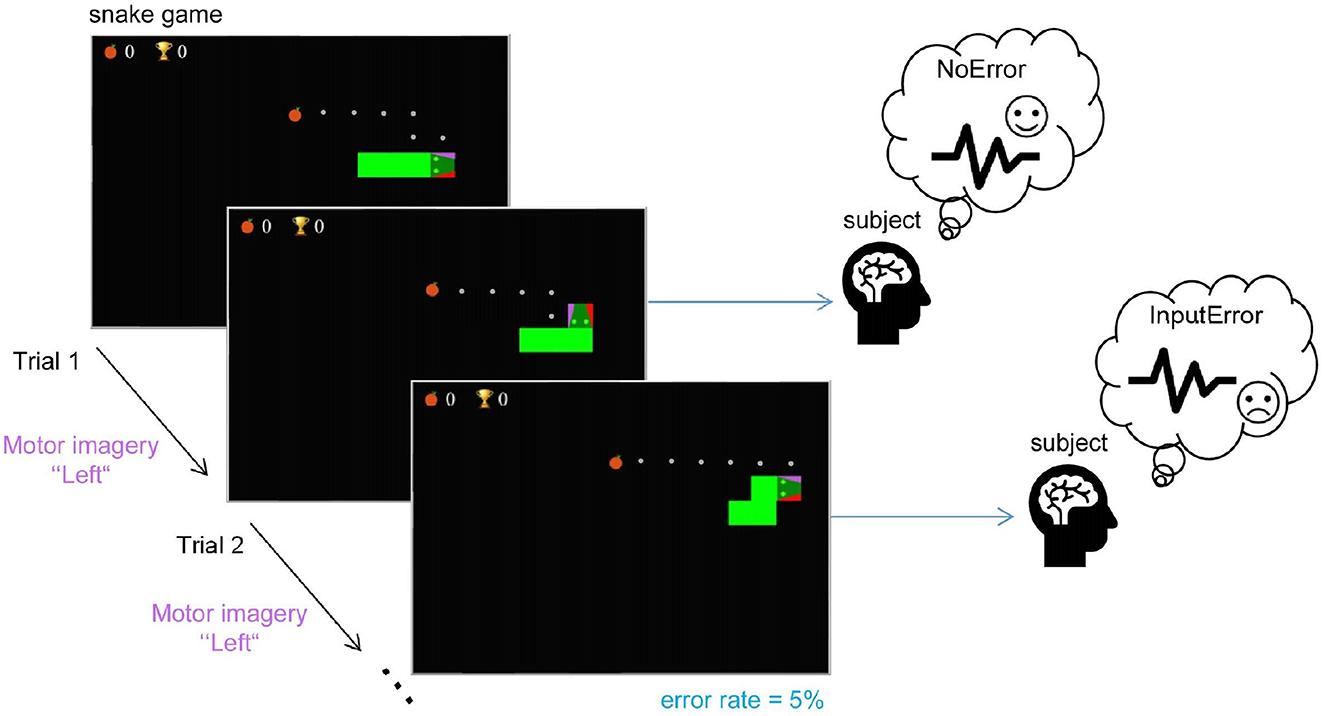
Lehrgebiet: Theoretische Informatik und künstliche Intelligenz
Büro: 01.214
Labor: 04.105
Telefon: +49 208 88254-806
E-Mail:
🛜 http://lab.iossifidis.net

Ioannis Iossifidis studierte Physik (Schwerpunkt: theoretische Teilchenphysik) an der Universität Dortmund und promovierte 2006 an der Fakultät für Physik und Astronomie der Ruhr-Universität Bochum.
Am Institut für Neuroinformatik leitete Prof. Dr. Iossifidis die Arbeitsgruppe Autonome Robotik und nahm mit seiner Forschungsgruppe erfolgreich an zahlreichen, vom BmBF und der EU, geförderten Forschungsprojekten aus dem Bereich der künstlichen Intelligenz teil. Seit dem 1. Oktober 2010 arbeitet er an der HRW am Institut Informatik und hält den Lehrstuhl für Theoretische Informatik – Künstliche Intelligenz.
Prof. Dr. Ioannis Iossifidis entwickelt seit über 20 Jahren biologisch inspirierte anthropomorphe, autonome Robotersysteme, die zugleich Teil und Ergebnis seiner Forschung im Bereich der rechnergestützten Neurowissenschaften sind. In diesem Rahmen entwickelte er Modelle zur Informationsverarbeitung im menschlichen Gehirn und wendete diese auf technische Systeme an.
Ausgewiesene Schwerpunkte seiner wissenschaftlichen Arbeit der letzten Jahre sind die Modellierung menschlicher Armbewegungen, der Entwurf von sogenannten «Simulierten Realitäten» zur Simulation und Evaluation der Interaktionen zwischen Mensch, Maschine und Umwelt sowie die Entwicklung von kortikalen exoprothetischen Komponenten. Entwicklung der Theorie und Anwendung von Algorithmen des maschinellen Lernens auf Basis tiefer neuronaler Architekturen bilden das Querschnittsthema seiner Forschung.
Ioannis Iossifidis’ Forschung wurde u.a. mit Fördermitteln im Rahmen großer Förderprojekte des BmBF (NEUROS, MORPHA, LOKI, DESIRE, Bernstein Fokus: Neuronale Grundlagen des Lernens etc.), der DFG («Motor‐parietal cortical neuroprosthesis with somatosensory feedback for restoring hand and arm functions in tetraplegic patients») und der EU (Neural Dynamics – EU (STREP), EUCogII, EUCogIII ) honoriert und gehört zu den Gewinnern der Leitmarktwettbewerbe Gesundheit.NRW und IKT.NRW 2019.
ARBEITS- UND FORSCHUNGSSCHWERPUNKTE
- Computational Neuroscience
- Brain Computer Interfaces
- Entwicklung kortikaler exoprothetischer Komponenten
- Theorie neuronaler Netze
- Modellierung menschlicher Armbewegungen
- Simulierte Realität
WISSENSCHAFTLICHE EINRICHTUNGEN
- Labor mit Verlinkung
- ???
- ???
LEHRVERANSTALTUNGEN
- ???
- ???
- ???
PROJEKTE
- Projekt mit Verlinkung
- ???
- ???
WISSENSCHAFTLICHE MITARBEITER*INNEN

Felix Grün
Büro: 02.216 (Campus Bottrop)

Marie Schmidt
Büro: 02.216 (Campus Bottrop)

Aline Xavier Fidencio
Gastwissenschaftlerin

Muhammad Ayaz Hussain
Doktorand

Tim Sziburis
Doktorand

Farhad Rahmat
studentische Hilfskraft
GOOGLE SCHOLAR PROFIL

Artikel
Fidêncio, Aline Xavier; Grün, Felix; Klaes, Christian; Iossifidis, Ioannis
Error-Related Potential Driven Reinforcement Learning for Adaptive Brain-Computer Interfaces Artikel
In: Arxiv, 2025.
Abstract | Links | BibTeX | Schlagwörter: BCI, Computer Science - Human-Computer Interaction, Computer Science - Machine Learning, EEG, Quantitative Biology - Neurons and Cognition, Reinforcement learning
@article{fidencioErrorrelatedPotentialDriven2025,
title = {Error-Related Potential Driven Reinforcement Learning for Adaptive Brain-Computer Interfaces},
author = {Aline Xavier Fidêncio and Felix Grün and Christian Klaes and Ioannis Iossifidis},
url = {http://arxiv.org/abs/2502.18594},
doi = {10.48550/arXiv.2502.18594},
year = {2025},
date = {2025-02-25},
urldate = {2025-02-25},
journal = {Arxiv},
abstract = {Brain-computer interfaces (BCIs) provide alternative communication methods for individuals with motor disabilities by allowing control and interaction with external devices. Non-invasive BCIs, especially those using electroencephalography (EEG), are practical and safe for various applications. However, their performance is often hindered by EEG non-stationarities, caused by changing mental states or device characteristics like electrode impedance. This challenge has spurred research into adaptive BCIs that can handle such variations. In recent years, interest has grown in using error-related potentials (ErrPs) to enhance BCI performance. ErrPs, neural responses to errors, can be detected non-invasively and have been integrated into different BCI paradigms to improve performance through error correction or adaptation. This research introduces a novel adaptive ErrP-based BCI approach using reinforcement learning (RL). We demonstrate the feasibility of an RL-driven adaptive framework incorporating ErrPs and motor imagery. Utilizing two RL agents, the framework adapts dynamically to EEG non-stationarities. Validation was conducted using a publicly available motor imagery dataset and a fast-paced game designed to boost user engagement. Results show the framework's promise, with RL agents learning control policies from user interactions and achieving robust performance across datasets. However, a critical insight from the game-based protocol revealed that motor imagery in a high-speed interaction paradigm was largely ineffective for participants, highlighting task design limitations in real-time BCI applications. These findings underscore the potential of RL for adaptive BCIs while pointing out practical constraints related to task complexity and user responsiveness.},
keywords = {BCI, Computer Science - Human-Computer Interaction, Computer Science - Machine Learning, EEG, Quantitative Biology - Neurons and Cognition, Reinforcement learning},
pubstate = {published},
tppubtype = {article}
}
Fidencio, Aline Xavier; Klaes, Christian; Iossifidis, Ioannis
Error-Related Potentials in Reinforcement Learning-Based Brain-Machine Interfaces Artikel
In: Frontiers in Human Neuroscience, Bd. 16, 2022.
Abstract | Links | BibTeX | Schlagwörter: BCI, EEG, error-related potentials, Machine Learning, Reinforcement learning
@article{xavierfidencioErrorrelated,
title = {Error-Related Potentials in Reinforcement Learning-Based Brain-Machine Interfaces},
author = {Aline Xavier Fidencio and Christian Klaes and Ioannis Iossifidis},
url = {https://www.frontiersin.org/article/10.3389/fnhum.2022.806517},
doi = {https://doi.org/10.3389/fnhum.2022.806517},
year = {2022},
date = {2022-06-24},
urldate = {2022-06-24},
journal = {Frontiers in Human Neuroscience},
volume = {16},
abstract = {The human brain has been an object of extensive investigation in different fields. While several studies have focused on understanding the neural correlates of error processing, advances in brain-machine interface systems using non-invasive techniques further enabled the use of the measured signals in different applications. The possibility of detecting these error-related potentials (ErrPs) under different experimental setups on a single-trial basis has further increased interest in their integration in closed-loop settings to improve system performance, for example, by performing error correction. Fewer works have, however, aimed at reducing future mistakes or learning. We present a review focused on the current literature using non-invasive systems that have combined the ErrPs information specifically in a reinforcement learning framework to go beyond error correction and have used these signals for learning.},
keywords = {BCI, EEG, error-related potentials, Machine Learning, Reinforcement learning},
pubstate = {published},
tppubtype = {article}
}
Proceedings Articles
Grün, Felix; Iossifidis, Ioannis
Controversial Opinions on Model Based and Model Free Reinforcement Learning in the Brain Proceedings Article
In: BCCN Bernstein Network Computational Networkvphantom, 2024.
Abstract | Links | BibTeX | Schlagwörter: Machine Learning, Reinforcement learning
@inproceedings{ControversialOpinionsModel2024,
title = {Controversial Opinions on Model Based and Model Free Reinforcement Learning in the Brain},
author = {Felix Grün and Ioannis Iossifidis},
url = {https://abstracts.g-node.org/conference/BC24/abstracts#/uuid/18e92e07-e4b1-43af-b2ac-ea282f4e81e7},
year = {2024},
date = {2024-09-18},
urldate = {2024-09-24},
publisher = {BCCN Bernstein Network Computational Networkvphantom},
abstract = {Dopaminergic Reward Prediction Errors (RPEs) are a key motivation and inspiration for model free, temporal difference reinforcement learning methods. Originally, the correlation of RPEs with model free temporal difference errors was seen as a strong indicator for model free reinforcement learning in brains. The standard view was that model free learning is the norm and more computationally expensive model based decision-making is only used when it leads to outcomes that are good enough to justify the additional effort. Nowadays, the landscape of opinions, models and experimental evidence, both electrophysiological and behavioral, paints a more complex picture, including but not limited to mechanisms of arbitration between the two systems. Model based learning or hybrid models better capture experimental behavioral data, and model based signatures are found in RPEs that were previously thought to be model free or hybrid [1]. The evidence for clearly model free learning is scarce [2]. On the other hand, multiple approaches show how model based behavior and RPEs can be produced with fundamentally model free reinforcement learning methods [3, 4, 5]. We point out findings that seem to contradict each other, others that complement each other, speculate which ideas are compatible with each other and give our opinions on ways forward, towards understanding if and how model based and model free learning from rewards coexist and interact in the brain.},
keywords = {Machine Learning, Reinforcement learning},
pubstate = {published},
tppubtype = {inproceedings}
}
Grün, Felix; Iossifidis, Ioannis
Investigation of the Interplay of Model-Based and Model-Free Learning Using Reinforcement Learning Proceedings Article
In: BC23 : Computational Neuroscience & Neurotechnology Bernstein Conference 2022, BCCN Bernstein Network Computational Network, 2023.
Abstract | BibTeX | Schlagwörter: Machine Learning, Reinforcement learning
@inproceedings{grunInvestigationInterplayModelBased2023,
title = {Investigation of the Interplay of Model-Based and Model-Free Learning Using Reinforcement Learning},
author = {Felix Grün and Ioannis Iossifidis},
year = {2023},
date = {2023-09-15},
urldate = {2023-09-15},
booktitle = {BC23 : Computational Neuroscience & Neurotechnology Bernstein Conference 2022},
publisher = {BCCN Bernstein Network Computational Network},
abstract = {The reward prediction error hypothesis of dopamine in the brain states that activity of dopaminergic neurons in certain brain regions correlates with the reward prediction error that corresponds to the temporal difference error, often used as a learning signal in model free reinforcement learning (RL). This suggests that some form of reinforcement learning is used in animal and human brains when learning a task. On the other hand, it is clear that humans are capable of building an internal model of a task, or environment, and using it for planning, especially in sequential tasks. In RL, these two learning approaches, model-driven and reward-driven, are known as model based and model-free RL approaches. Both systems were previously thought to exist in parallel, with some higher process choosing which to use. A decade ago, research suggested both could be used concurrently, with some subject-specific weight assigned to each [1]. Still, the prevalent belief appeared to be that model-free learning is the default mechanism used, replaced or assisted by model-based planning only when the task demands it, i.e. higher rewards justify the additional cognitive effort. Recently, Feher da Silva et al. [2] questioned this belief, presenting data and analyses that indicate model-based learning may be used on its own and can even be computationally more efficient. We take a RL perspective, consider different ways to combine model-based and model-free approaches for modeling and for performance, and discuss how to further study this interplay in human behavioral experiments.},
keywords = {Machine Learning, Reinforcement learning},
pubstate = {published},
tppubtype = {inproceedings}
}
Grün, Felix; Iossifidis, Ioannis
Exploring Distribution Parameterizations for Distributional Continuous Control Proceedings Article
In: BC22 : Computational Neuroscience & Neurotechnology Bernstein Conference 2022, BCCN Bernstein Network Computational Network, 2022.
Links | BibTeX | Schlagwörter: Machine Learning, Reinforcement learning
@inproceedings{grunExploringDistributionParameterizations2022,
title = {Exploring Distribution Parameterizations for Distributional Continuous Control},
author = {Felix Grün and Ioannis Iossifidis},
doi = {10.12751/nncn.bc2022.112},
year = {2022},
date = {2022-09-15},
urldate = {2022-09-15},
booktitle = {BC22 : Computational Neuroscience & Neurotechnology Bernstein Conference 2022},
publisher = {BCCN Bernstein Network Computational Network},
keywords = {Machine Learning, Reinforcement learning},
pubstate = {published},
tppubtype = {inproceedings}
}
Grün, Felix; Glasmachers, Tobias; Iossifidis, Ioannis
Off-Policy Continuous Control Using Distributional Reinforcement Learning Proceedings Article
In: Bernstein Conference, 2021.
Links | BibTeX | Schlagwörter: Machine Learning, Reinforcement learning
@inproceedings{grunOffPolicyContinuousControl2021b,
title = {Off-Policy Continuous Control Using Distributional Reinforcement Learning},
author = {Felix Grün and Tobias Glasmachers and Ioannis Iossifidis},
doi = {10.12751/nncn.bc2021.p001},
year = {2021},
date = {2021-10-01},
urldate = {2021-10-01},
publisher = {Bernstein Conference},
keywords = {Machine Learning, Reinforcement learning},
pubstate = {published},
tppubtype = {inproceedings}
}
Fidencio, Aline Xavier; Glasmachers, Tobias; Klaes, Christian; Iossifidis, Ioannis
Beyond Error Correction: Integration of Error-Related Potentials into Brain-Computer Interfaces for Improved Performance Proceedings Article
In: Bernstein Conference, 2021.
Links | BibTeX | Schlagwörter: BCI, error-related potentials, Machine Learning, Reinforcement learning
@inproceedings{xavierfidencioErrorCorrectionIntegration2021b,
title = {Beyond Error Correction: Integration of Error-Related Potentials into Brain-Computer Interfaces for Improved Performance},
author = {Aline Xavier Fidencio and Tobias Glasmachers and Christian Klaes and Ioannis Iossifidis},
doi = {10.12751/nncn.bc2021.p163},
year = {2021},
date = {2021-10-01},
urldate = {2021-10-01},
publisher = {Bernstein Conference},
keywords = {BCI, error-related potentials, Machine Learning, Reinforcement learning},
pubstate = {published},
tppubtype = {inproceedings}
}
Grün, Felix; Glasmachers, Tobias; Iossifidis, Ioannis
Off-Policy Continuous Control Using Distributional Reinforcement Learning Proceedings Article
In: BC21 : Computational Neuroscience & Neurotechnology Bernstein Conference 2021, BCCN Bernstein Network Computational Network, 2021.
Links | BibTeX | Schlagwörter: Machine Learning, Reinforcement learning
@inproceedings{grunOffPolicyContinuousControl2021,
title = {Off-Policy Continuous Control Using Distributional Reinforcement Learning},
author = {Felix Grün and Tobias Glasmachers and Ioannis Iossifidis},
doi = {10.12751/nncn.bc2021.p001},
year = {2021},
date = {2021-09-15},
urldate = {2021-09-15},
booktitle = {BC21 : Computational Neuroscience & Neurotechnology Bernstein Conference 2021},
publisher = {BCCN Bernstein Network Computational Network},
keywords = {Machine Learning, Reinforcement learning},
pubstate = {published},
tppubtype = {inproceedings}
}

